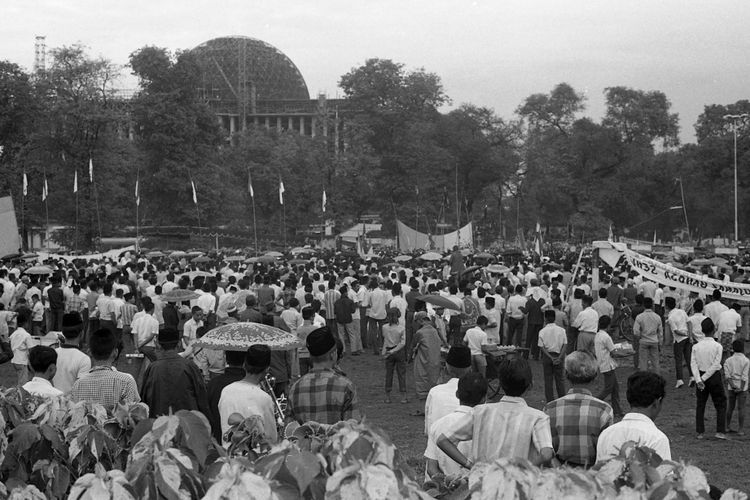My Personal Response to 'Annexed' by Sharon Dogar
- E. Deborah Kalauserang

- Mar 12, 2018
- 5 min read
Updated: Mar 13, 2018

What was it like to hide in a confined space with the hope that the Nazis will not take hold of you? What was it like to love Anne Frank with your entire family watching? And most of all, what was it like for your humanity to be taken away and to be turned into an animal? Peter van Pels experienced it all. Annexed, a young-adult, fiction novel written by Sharon Dogar, retells the story of Anne Frank through the eyes of the boy who hid with her in the attic for two years and whose humanity was stripped off in Nazi's concentration camp. In this book, Sharon Dogar manages to drive her readers into Peter's world to feel his pain, sorrow and longing for freedom. Gripping, captivating and compelling, Annexed succeeds to establish an emotional connection between the main character and readers above 15 years old, people who are studying World War II and those who desire to 'continue' reading Anne Frank's The Diary of a Young Girl.
Annexed has brought so many people to tears, including me. Peter's perspective has turned all the characters into life and really describes them as humans, unlike their common portrayal as saints of Holocaust. “To some degree, they are almost treated like saints. They were just regular people who hold a very special place in history... I guess because I've shied away fom Anne's story because of its level of sainthood, I hadn't really looked at them as people. Dogar's portrayal of both Peter and Anne are just so human and heart breaking,” stated Anna Scalon (Scalon, 2010), guest editor of Remember.org. Peter's words and description of his thoughts in the annex is so vivid and precise. Because of that, I personally can feel his hatred toward the Nazis for taking away his liberty, his passionate love for Anne and his desire for freedom, specifically his heimweh—longing for home. By doing so, Peter has pushed the readers so far into his realm and unconciously includes them into his story. For me, I consider it as a sad irony because we all know what is going to happen to him in the end. After surviving the extermination selection in Auschwitz, Peter died in May 5, 1945 just when the Americans liberated his concentration camp in Mauthausen-Gusen. Despite everything, I do not regret
to know Peter van Pels through Sharon Dogar's hands, for I believe that he will live forever in all of the readers' hearts. “That is what makes reading this book so hard—you are getting to know and love a person you already know has a horrible fate...regardless, the voice that Sharon Dogar gives her characters will get a grip on you that doesn't let go, even when the story is over.” (Allison, 2010)
The author elaborates her work with important, moving words from Peter's mouth and nails them in the readers' mind to keep him alive. She manages to explain how it is like to be a Jew in the Holocaust as Peter poured his thoughts by saying “...maybe I’m ashamed because it’s hard not to feel ashamed, when just being born is something you can be killed for.” Another phrase that moves me is when he said “...I know that sometimes love is as hard to bear as hate, that it can hurt as much,” describing how the amount of hate for the Germans is the same amount of love his mother had for him. The last quote from Peter is the one that actually pierces my heart so deep when he was dying inside the concentration camp: “...Even if you replace my name with a number, give me no spoon to eat with, or clothes, or shoes to walk in – so that I am forced to live and eat like one. I am not an animal.” That is the part where I am drenched in tears, where I accept the fact that all Jews like Peter still have the light and identity as humans even though they were treated like animals. I am convinced that these quotes perfectly relates the readers to Peter's feelings in a simple yet meaningful words. It also truly exposes how Dogar's detailed portrayal of Nazi's cruelty can break one's heart, as stated by Mandy Southgate in Blogcritics.org: “Gleaming what information she could (find) from historical accounts and camp records, Dogar weaves together a tale of the experiences of the Frank and van Pels families at the hands of Nazis. It is horrific and heartbreaking and I found myself crying throughout the whole of the final section.” (Southgate, 2011)
This book is highly recommended and deserves to be read by specific readers. First, teens aging from 15 above are the ones who are suitable for reading this work. There are several sexual, explicit portrayals like when Peter dreamt that Liese—his jewish girlfriend—was shot by the Nazi guards in an bare, exposed condition during her persecution in the camp. Another sexual content is when Peter masturbates in the annex, questioning will he ever make love to a girl someday, when Dogar describes that there is “sexual desire (that) uncoils in the dim hiding place...” and also when Anne “...yearned for sexual love,” (Peet, 2010) like what was implied by Anne in several of her diary entries. Second, I recommend this novel to those who are studying about World War II since one cannot learn about it without mentioning the Holocaust and Nazis. Lastly, this book is perfect for those who desire to 'continue' reading Anne Frank's diary that was ended abruptly. I am sure that Anne Frank readers will enjoy Dogar's work immensely and driven into Peter's world, where they can witness the characters not as saints but ordinary people who change the perspective of history.
Annexed “is not quite a great book, but it is firmly on the side of angels,” as quoted by Mal Peet (Peet, 2010), winner of Guardian's 2009 Children's Fiction Prize.
It is a living story full of trials, tribulations, passion and faith for humanity in the eyes of a 16-year-old Jewish boy who loved Anne Frank.
Sharon Dogar's work succeeds to captivate the readers' emotions with ghastly portrayals of the Holocaust and one's feeling of desiring love and liberty. It takes them far beyond the readers' imaginations of what it is like to live in confinement and terror. Most of all, Peter van Pels has taught the readers that neither the shed of blood nor death can wipe out one's identity and longing for home—heimweh. As he lied down in the Mauthausen sick bay, Austria, he ended his life by saying these following words: “There was a girl, wasn't there? There was a place. A place where the leaves fell like golden coins from a tree into the water as we watched through the attic window... and before that there was a home, a street, a world, a girl I loved.”
References
Dogar, Sharon. Annexed. Houghton Mifflin, 2010.Frank, Anne. The Diary of a Young Girl. Bantam, 1993.
Scalon, Anna. “Annexed by Sharon Dogar.” Remember.org—A People's History of the Holocaust & Genocide 2 October 2010:-. http://www.remember.org/holocaust/2010/10/annexed-by-sharon-dogar.html. Web. 4 June 2017.
Dayle, Allison. “Review: Annexed by Sharon Dogar.” The Allure of Books 5 June 2010:-. http://theallureofbooks.com/2010/06/review-annexed-by-sharon-dogar.html. Web. 4 June 2017.
Southgate, Mandy. “Book Review: Annexed by Sharon Dogar.” Blogcritics—The Critical Lense of Today's Culture and Entertainment 30 January 2011:-. http://blogcritics.org/book-review-annexed-by-sharon-dogar/. Web. 4 June 2017.
Peet, Mal. “Annexed by Sharon Dogar—Mal Peet on a Brave Retelling of Anne Frank's Story.” The Guardian 18 September 2010:-. https://www.theguardian.com/books/2010/sep/18/annexed-sharon-dogar-review. Web. June 4 2017.




Comments